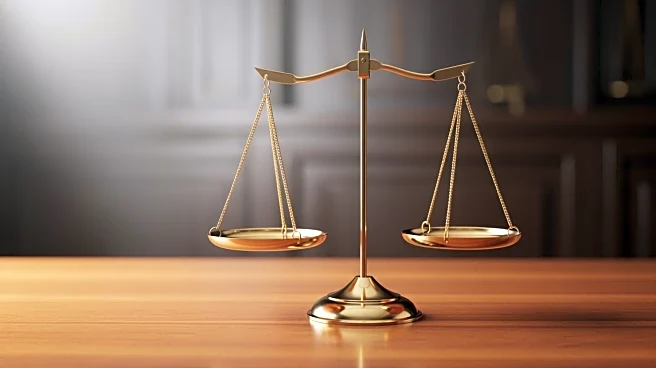What's Happening?
The United States Supreme Court has announced the adoption of its first formal Code of Conduct, aimed at clarifying the ethical rules and principles guiding the conduct of its members. This move comes
in response to declining public trust in the court, which has been perceived as increasingly partisan following recent controversial decisions. The code includes five ethical canons addressing standards of conduct, recusal, extrajudicial activities, and political engagement. However, the code lacks a formal enforcement mechanism, leading to skepticism about its effectiveness in addressing ethical concerns.
Why It's Important?
The adoption of a Code of Conduct by the Supreme Court is a significant step in addressing public concerns about judicial ethics and integrity. While the code aims to dispel misconceptions about the court's adherence to ethical standards, its lack of enforcement mechanisms may limit its impact on restoring public trust. The move reflects ongoing debates about the need for transparency and accountability in the judiciary, particularly in light of recent allegations of ethical lapses by some justices.
What's Next?
The effectiveness of the new Code of Conduct in addressing ethical concerns will likely be scrutinized by legal experts and the public. Calls for further reforms, including the introduction of binding and enforceable ethics standards, may continue as lawmakers and advocacy groups push for greater accountability. The court's ability to self-regulate and maintain public confidence will be tested as it navigates complex ethical issues in the future.
Beyond the Headlines
The Supreme Court's adoption of a Code of Conduct highlights broader questions about the role of ethics in maintaining judicial integrity. The lack of enforcement mechanisms may prompt discussions about the need for systemic reforms to ensure accountability and transparency in the judiciary. The issue may also raise questions about the balance between judicial independence and the need for oversight in safeguarding ethical standards.










